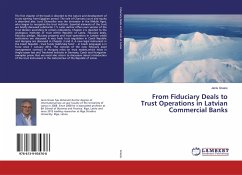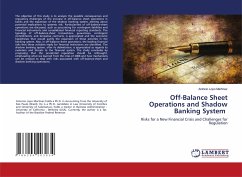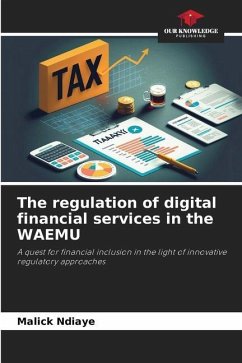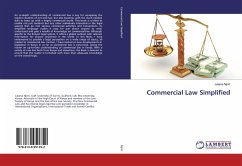
From Fiduciary Deals to Trust Operations in Latvian Commercial Banks
Versandkostenfrei!
Versandfertig in 6-10 Tagen
36,99 €
inkl. MwSt.

PAYBACK Punkte
18 °P sammeln!
The first chapter of the book is devoted to the nature and development of trusts starting from Egyptian period. The role of Chancery court and equity is described also. Lord Chancellor was the innovator in the Middle Ages, who began to recognize the trust institute. Essential elements of the trust are briefly discussed subcharter 1.5. Later author offers own version of the trust division according to certain indications. Chapter 2 is devoted to the analogous institutes of trust within Republic of Latvia. Fiduciary deals, fiduciary pledge, fiduciary property and trust operations in Latvian cred...
The first chapter of the book is devoted to the nature and development of trusts starting from Egyptian period. The role of Chancery court and equity is described also. Lord Chancellor was the innovator in the Middle Ages, who began to recognize the trust institute. Essential elements of the trust are briefly discussed subcharter 1.5. Later author offers own version of the trust division according to certain indications. Chapter 2 is devoted to the analogous institutes of trust within Republic of Latvia. Fiduciary deals, fiduciary pledge, fiduciary property and trust operations in Latvian credit institutions are discussed. A very fresh trust regulation in Czech Republic and Hungary are discussed in Chapter 3 and 4. A new legal instrument in the Czech Republic - trust funds (sverenský fond' - in Czech language) is in force since 1 January 2014. The concept of the new fiduciary asset management contract in Hungary relies on trust models,which exists in Anglo-saxon law and Treuhand institute in Germany. Czech and Hungarian examples prove that we need also return to discussion about introduction of the trust instrument in the material law of the Republic of Latvia.












